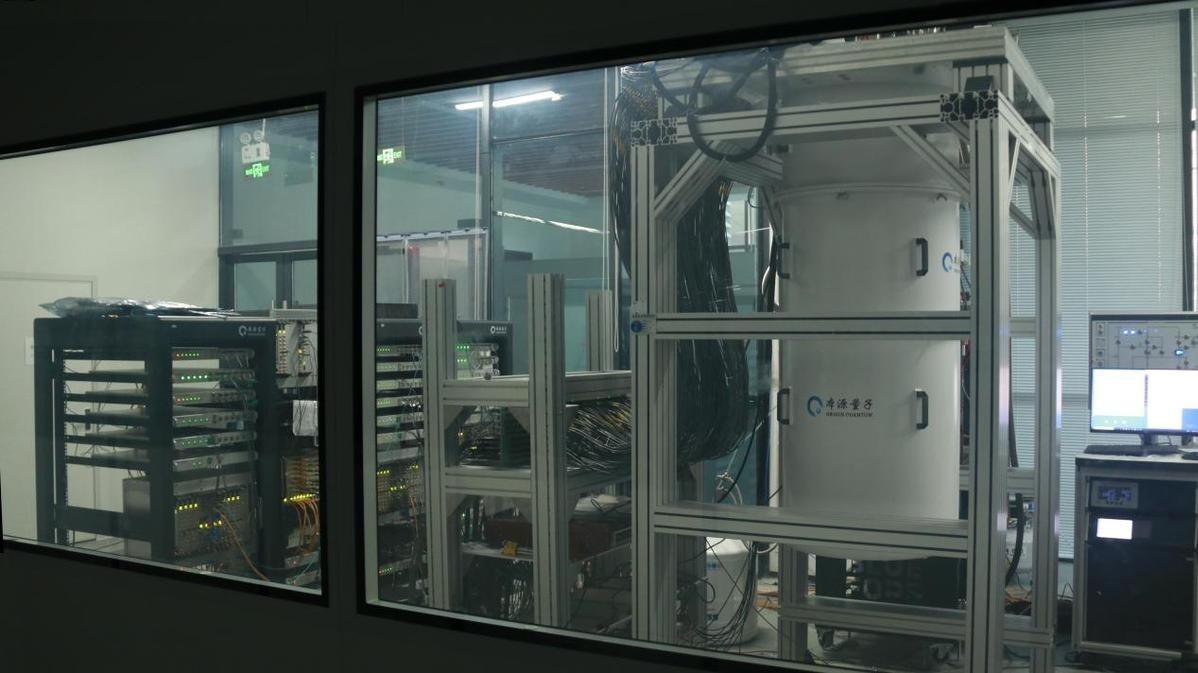 Origin Wukong, China's independently developed third-generation superconducting quantum computer, went into operation at Origin Quantum Computing Technology (Hefei) Co Ltd in East China's Anhui province, on Jan 6, 2024. (PHOTO / XINHUA)
Origin Wukong, China's independently developed third-generation superconducting quantum computer, went into operation at Origin Quantum Computing Technology (Hefei) Co Ltd in East China's Anhui province, on Jan 6, 2024. (PHOTO / XINHUA)
China's efforts to scale up the manufacture of superconducting quantum computers have gathered momentum with the launch of the country's independently developed third-generation Origin Wukong, said industry experts on Monday.
The latest quantum computer, which is powered by Wukong, a 72-qubit indigenous superconducting quantum chip, has become the most advanced programmable and deliverable superconducting quantum computer currently available in China.
The chip was developed by Origin Quantum, a Hefei, Anhui province-based quantum chip startup. The company has already delivered its first and second generations of superconducting quantum computers to the Chinese market.
"The release of the latest quantum computer and chips offers a new entry ticket for China's superconducting quantum computer in terms of manufacturing. It means that the country is able to manufacture such computers from a small scale to a medium scale," said Jia Zhilong, deputy director of the Anhui Quantum Computing Engineering Research Center's Quantum Computing Chip Provincial Key Laboratory.
Compared with previous generation quantum computers, the latest one is powered by more advanced chips, Jia said.
The Wukong chip, he said, has 198 qubits, including 72 working qubits and 126 coupler qubits. Qubits represent quantum's key advantage over classical computing.
Wukong's name was inspired by Sun Wukong, a mythical Chinese figure who can assume 72 different forms. The name symbolizes the computer's power and versatility.
Currently, quantum computing is seen as the most promising alternative to the general computer based on silicon chips. But for now, quantum computing technology exists on a small scale, and only a small number of companies internationally, such as Google and IBM, are able to develop such computers.
"The latest chips will improve the efficiency of current global quantum computers by many times," said Kong Weicheng, deputy director of the Anhui Quantum Computing Engineering Research Center.
In terms of speed, the latest computer can execute the calculation tasks of up to 200 quantum circuits at a time, which gives it a speed advantage over similar international quantum computers, Kong said.
Global consulting firm McKinsey& Co said it expects quantum computing will have a value of up to $700 billion by conservative estimates by 2035, driven by demand from pharmaceutical, chemical, auto and financial sectors among others.
China said in its 14th Five-Year Plan (2021-25) that it will speed up frontier science and technological blueprints such as quantum computing and quantum communication.
Contact the writers at chengyu@chinadaily.com.cn


